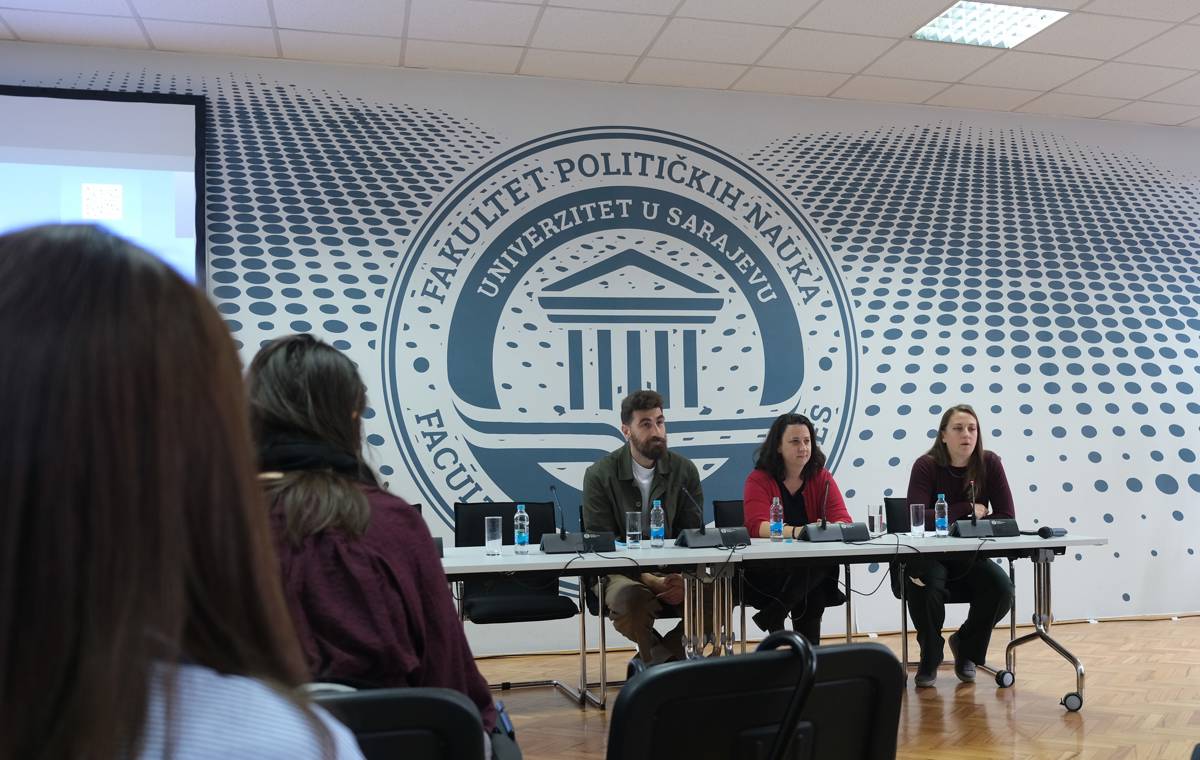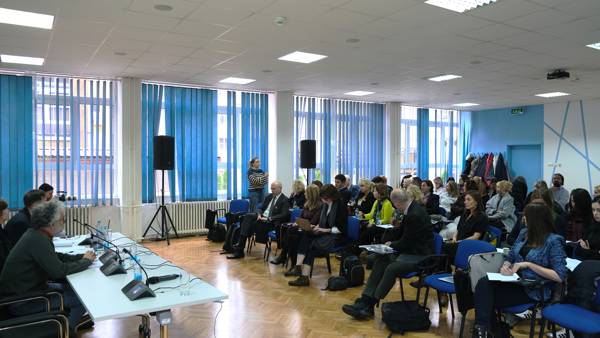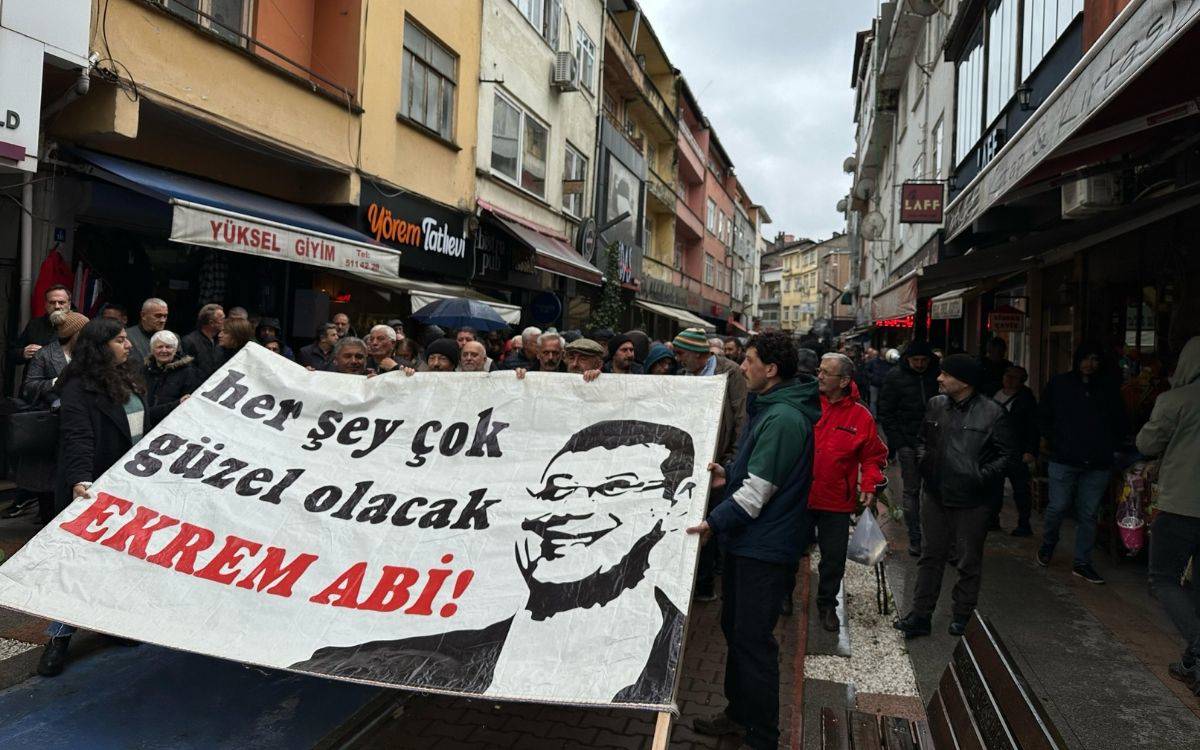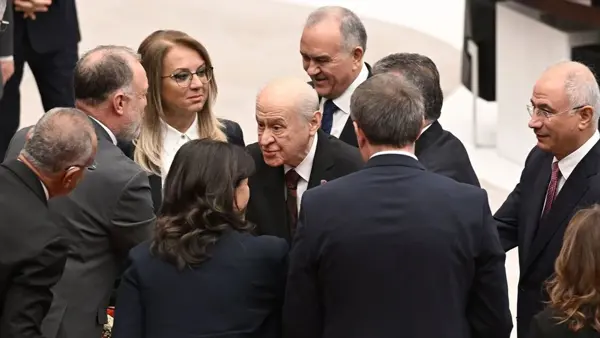In a bid to expand its alliance ahead of the May 14 elections, President Recep Tayyip Erdoğan's ruling party has been in touch with the Free Cause Party (HÜDA PAR), an Islamist party mostly active in the country's predominantly Kurdish-populated regions.
The talks apparently began in early January, when Erdoğan hosted Zekeriya Yapıcıoğlu, head of the HÜDA PAR, at the presidential complex. Speaking to reporters after his visit, Yapıcıoğlu had said the elections were among the topics he had discussed with the president, without giving further details.
On Saturday, ahead of a meeting with two senior officials from Erdoğan's Justice and Development Party (AKP) at his party's headquarters, Yapıcıoğlu announced their endorsement of the incumbent president in the upcoming elections.
Following the meeting, Yapıcıoğlu said talks regarding a possible cooperation in the parliamentary election were underway. "In principle, there is no problem about acting together in the parliamentary elections as well. But the details are not yet clear."
The ruling alliance currently comprises the AKP, the Nationalist Movement Party (MHP), and the Great Unity Party (BBP).
HÜDA PAR's past and Erdoğan's motives
While both the ruling and opposition alliances are after marginal gains ahead of what is anticipated to be a close race, Erdoğan's HÜDA PAR move has been met with skepticism given the party's negligible popular support. In the previous elections in 2018, the party got only 0.3 percent of the votes, with no indications that its popularity has changed since then.
Critics have also linked the HÜDA PAR to Hizbullah, also known as the Kurdish Hezbollah, a group that perpetrated hundreds of targeted killings in the 1990s.
Faik Öztrak, a spokesperson for the main opposition Republican People's Party (CHP), slammed the government yesterday, saying, "They are so troubled that they will make a coalition with the HÜDA PAR."
He listed some of the killings perpetrated by Hizbullah, including the assassinations of Gaffar Okkan, the then-provincial police chief of Diyarbakır, Konca Kuriş, a Muslim feminist author, and Halit Güngen, a journalist.
Mehmet Yula, an advisor for the CHP's Eastern Desk, asserted that Erdoğan approached the HÜDA PAR "in panic," anticipating CHP leader Kemal Kılıçdaroğlu's approval in the Kurdish regions. Kılıçdaroğlu will run against Erdoğan for presidency. Yula also described the HÜDA PAR as the "legal branch of Hizbullah."
Meral Danış-Beştaş, deputy chair of the Peoples' Democratic Party (HDP) parliamentary group, made similar remarks at a press conference at the parliament yesterday. "The People's Alliance is in great panic, they go everywhere they can," she said.
Cevat Öneş, a former deputy undersecretary of Turkey's intelligence agency, said that the public shouldn't turn a blind eye to the emerging alliance between the AKP and the HÜDA PAR, describing Hizbullah as "an organization with a dark past."
"There are issues being discussed. The issue of creating a climate of fear before the elections, the issue of increasing oppression amid a climate of fear, the issue of seeking to create an environment of silence, from the media to the public, intellectuals..." he told journalist Ezo Özer in a YouTube interview. "I'm following the debate. The issue of relations with structures that have a shady past... People shouldn't turn a blind eye to these debates."
The HÜDA PAR, however, denies any ties to Hizbullah. Serkan Ramanlı, a spokesperson for the party, said yesterday, "We are not the predecessors of Hizbullah. We don't defend anyone. We defend ourselves."
"We are not disturbed by the attacks on us. On the contrary, these attacks make our voice reach our people," he told Rudaw.
Hizbullah
Formed in the early 1980s, Hizbullah gained notoriety in the early 1990s, during the armed insurgency of the Kurdistan Workers' Party (PKK).
People considered to be associated with the PKK were Hizbullah's main target in the country's predominantly Kurdish-populated east and southeast, as Hüseyin Velioğlu, founder of Hizbullah, viewed the group as "infidels" due to its Marxist views.
In the first half of the 1990s, Hizbullah killed hundreds of people whom it considered associated with the PKK, including journalists and politicians. In this period, the security forces also committed thousands of extrajudicial killings in the region.
Focusing on suppressing the PKK insurgency, the government mostly turned a blind eye to Hizbullah's killings and abductions during that period. Because of that, Hizbullah, which means "the party of God," was dubbed "Hizbulkontra," or "the party of the counter-guerilla."
Hizbullah claimed the 1992 killing of Democracy Party (DEP) deputy Mehmet Sincar, one of the first MPs of the Kurdish political movement that precedes the HDP. Only the assassin has been convicted after the murder, and the case against the other defendants will drop due to statute of limitations within this year. Kurdish politicians widely cite Sincar's killing as an example of the cooperation between the state and Hizbullah.
|
Halit Güngen, the Diyarbakır representative of the 2000'e Doğru magazine, first revealed Velioğlu as the head of Hizbullah in 1992. He was shot dead in the magazine's office two days after the report was published. In his report, Güngen had revealed that the Diyarbakır riot police had been training Hizbullah members.
In another significant assassination, Hizbullah killed Konca Kuriş, a Muslim feminist author, after abducting and torturing her for weeks in a house in Konya.
Kuriş disappeared in July 1998. About a year later, Hizbullah claimed her abduction and killing, describing her as "an advocate of secularism and an enemy of Islam."
Her body was found in a shallow grave in a house in Konya, one of what was known as the "grave houses" of Hizbullah. She had been "interrogated" and tortured for weeks.
The crackdown and the trial
The crackdown on Hizbullah coincides with the decrease in extrajudicial killings in the country's Kurdish regions. Between 1996 and 2000, hundreds of Hizbullah members were detained.
|
In January 2000, Velioğlu was killed in an armed clash with the police during a raid on his house in Beykoz, İstanbul. Edip Gümüş and Cemal Tutar, known as Velioğlu's right-hand men, were captured alive.
The trial of Hizbullah started in May 2000 with 15 defendants. In December 2009, the court sentenced 16 defendants, including Tutar and Gümüş, to aggravated life imprisonment for the killings of 165 people. Fifteen other defendants were given prison sentences of from one and a half to 14 years.
Both Tutar and Gümüş defended their actions during the trial.
In January 2011, however, 23 convicts were released as per an amendment to the Code of Criminal Procedures that limits the period of arrest without conviction to 10 years.
Ten other convicts were released in 2019. Currently, none of the convicts are behind bars. (VK)





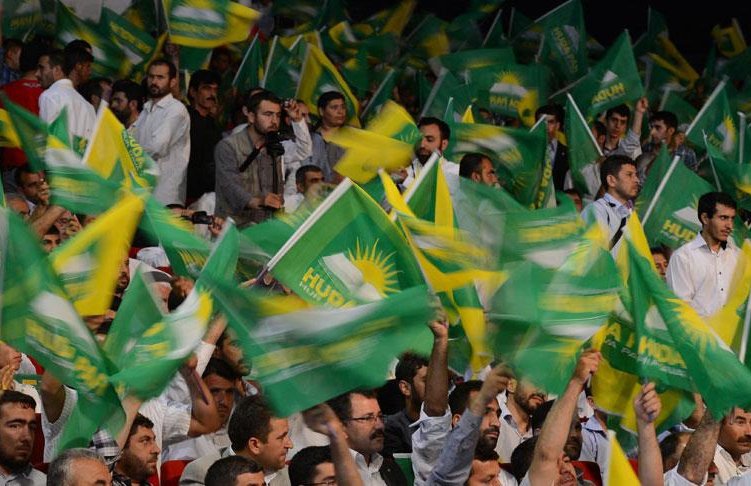
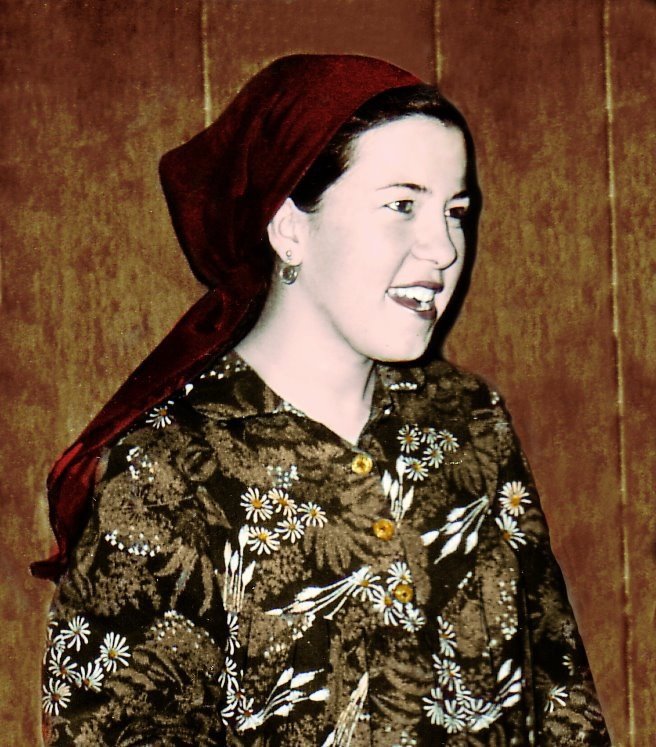 Konca Kuriş
Konca Kuriş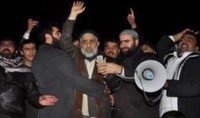 Edip Gümüş addressing Hizbullah suppoters after his release.
Edip Gümüş addressing Hizbullah suppoters after his release.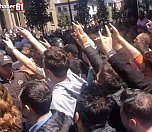
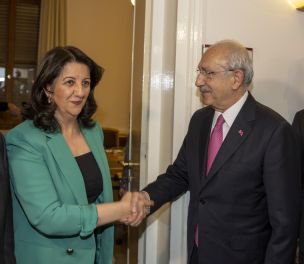
.jpg)
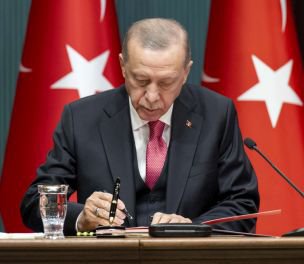
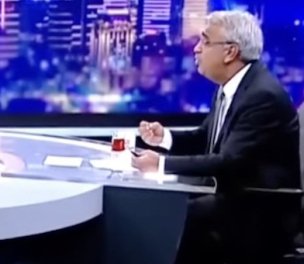
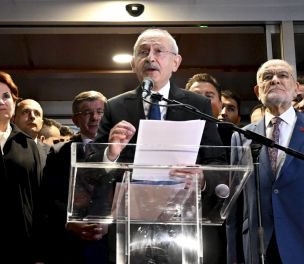
132.jpg)
